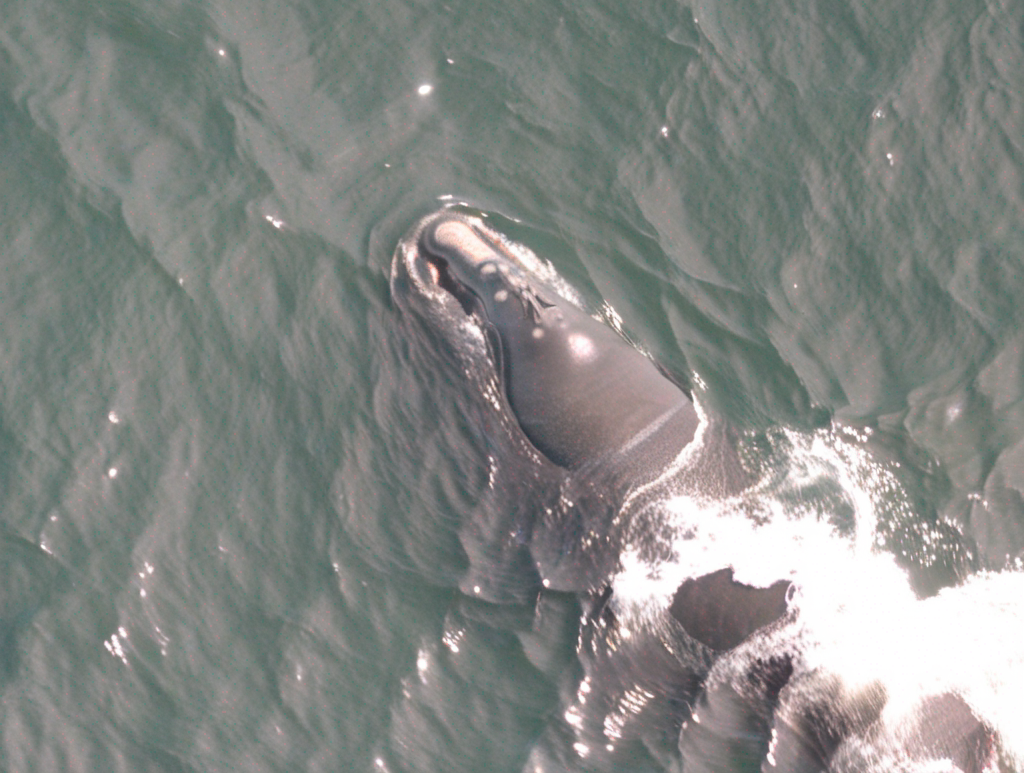‘StriperHub’ to Boost the East Coast Seafood Industry
FOR IMMEDIATE RELEASE
Contact:
Katie Mosher, 919-515-9069, kmosher@ncsu.edu
Researchers at North Carolina Sea Grant and NC State University are collaborating with experts along the Atlantic Seaboard on a new project to strengthen the domestic seafood industry. “StriperHub,” one of the National Sea Grant Office’s recently funded initiatives on sustainable aquaculture, is advancing the commercialization of marine striped bass.
NC State’s Benjamin Reading says the project will help address a $16 billion seafood trade deficit.
“Nine out of 10 seafood products that Americans consume are imported,” says Reading, StriperHub’s program coordinator. “But there’s a significant untapped demand for marine striped bass — and this project can help to satisfy those consumers.”
Hybrid striped bass, a cross between striped bass and white bass, already is a successful freshwater aquacultured fish, grossing $50 million in 2018, Reading says.
Both striped bass and its hybrids find eager consumers at markets, restaurants and sushi bars. Unlike the hybrid striped bass, however, the striped bass also thrives in saltwater and grows to a larger size.
“We are building upon NC State’s research and development of six generations of marine striped bass that have been bred in captivity,” Reading explains. “In addition, the early reception from consumers and servers of traditionally wild-caught striped bass shows they love the farm-fresh taste, too.”
NC State’s Russell Borski, StriperHub’s southeast regional coordinator, says taste is part of what makes striped bass a prized species for aquaculture — and a rarity.
“A candidate species has a premium price, high consumer demand, and adapts well to localized production,” Borski says. “Among white-fleshed marine fishes in the U.S., there aren’t many of these. But striped bass meets all the criteria.”
Frank Lopez, North Carolina Sea Grant’s extension director, serves as StriperHub’s principal investigator and director. The N.C. program has a long history of funding striped bass aquaculture research and extension, including hybrids.
The new project’s collaborators include other Sea Grant programs, industry partners, government researchers, policymakers, and university scientists, who together will consolidate and streamline commercialization of the species.
The team plans to define striped bass markets and the economics of production; develop education and training programs; clarify regulatory permitting and licensing procedures; and promote comprehensive outreach and visibility among likely producers and consumers of striped bass.
StriperHub already has supported bringing roughly 2,700 pounds of farm-raised striped bass to North Carolina markets.
In addition, to keep the supply chain active, the project has facilitated moving juvenile striped bass to farmers in the state. This includes about 2 million striped bass at the fry stage, when fish are first capable of feeding themselves, as well as 94,000 more striped bass at the fingerling stage, when the fish have developed scales and working fins.
Barry Nash, North Carolina Sea Grant’s seafood technology and marketing specialist, also will play a key role on the project, especially as StriperHub helps make the new seafood product increasingly available.
Throughout the project, Reading says, sustainability will be a guiding philosophy of StriperHub.
“Farming striped bass provides an opportunity to develop and sustain the population of these fish,” he explains. “And as part of our outreach, we’ll even be promoting no-waste recipes that capitalize on every part of the fish.”
The project also is investing in the next generation of fish farmers. Dave Cerino at Carteret Community College and Travis Brown at Brunswick Community College each already have received several hundred striped bass fingerlings for hands-on student education and training.
“There’s nothing like working with the actual fish,” Reading says.
Reading will speak at the North Carolina Aquaculture Development Conference, which will convene March 12 to 14 in New Bern, where the team will prepare and plan for StriperHub’s next stages. For more about the conference, visit NCaquaculture.org.
Principal Investigators
North Carolina Sea Grant (Lead Institute):
Frank Lopez, Principal Investigator and StriperHub Director; NC Sea Grant Extension Director
Barry Nash, Co-Principal Investigator; NC Sea Grant Outreach, Seafood Technology and Marketing Specialist
NC State University:
Benjamin Reading, Co-Principal Investigator and StriperHub Program Coordinator; Co-coordinator of the National Program for Genetic Improvement and Selective Breeding for the Hybrid Striped Bass Industry; Assistant Professor, Department of Applied Ecology
Russell Borski, Co-Principal Investigator and StriperHub Southeast Regional Coordinator; Professor, Department of Biological Sciences
University of New Hampshire:
David Berlinsky, Co-Principal Investigator and StriperHub Northeast Regional Coordinator; Professor, Department of Agriculture, Nutrition, and Food Systems
University of Maryland/Maryland Sea Grant:
Matt Parker, Co-Principal Investigator; University of Maryland Extension/Sea Grant Aquaculture Business Specialist
New York Sea Grant/Cornell University:
Mike Ciaramella, Co-Principal Investigator, NC Sea Grant Seafood Safety and Technology Specialist
Carteret Community College:
David Cerino, Co-Principal Investigator. Chair, Aquaculture Technology Program.
Other Collaborators and Cooperators:
Michael Chambers (New Hampshire Sea Grant)
Stacey Pigg (North Carolina State University, Department of English)
Andrew McGinty (North Carolina State University, Pamlico Aquaculture Field Laboratory)
Matt Brooker (North Carolina State University, Department of History)
Carolyn Dunn (North Carolina State University, Agricultural and Human Sciences)
Greg Bolton (North Carolina State University, Food, Bioprocessing and Nutrition Sciences)
Eugene Won (Cornell University)
Adam Fuller (USDA ARS Harry K. Dupree Stuttgart National Aquaculture Research Center)
Jason Abernathy (USDA ARS Harry K. Dupree Stuttgart National Aquaculture Research Center)
Steve Rawles (USDA ARS Harry K. Dupree Stuttgart National Aquaculture Research Center)
Mike Frinsko (North Carolina Cooperative Extension)
Steve Gabel (North Carolina Cooperative Extension)
Travis Brown (Brunswick Community College)
Joseph Bursey (North Carolina State University, Lake Wheeler Field Laboratory Fish Barn)
John Davis (North Carolina State University, Grinnells Aquatic Research Facility)
Seafood and Aquaculture Industry Partners and Cooperators:
Manna Fish Farms, Inc. (Long Island, NY), Donna Lanzetta and Konstantine Rountos
Artesian Aquafarms (South Mills, NC), Gary Sawyer
Locals Seafood (Raleigh, NC), Ryan Speckman and Lin Peterson
Pungo Fisheries (Pinetown, NC), Craig Perry
Cargill, Marc Turano
Marshallberg Farm (Smyrna, NC) and Lapaz (Lenoir, NC), IJ Won
Delmarva Aquatics (Smyrna, DE), William (Skip) Bason
OnleyTheBest (Hertford, NC), Aubrey Onley


